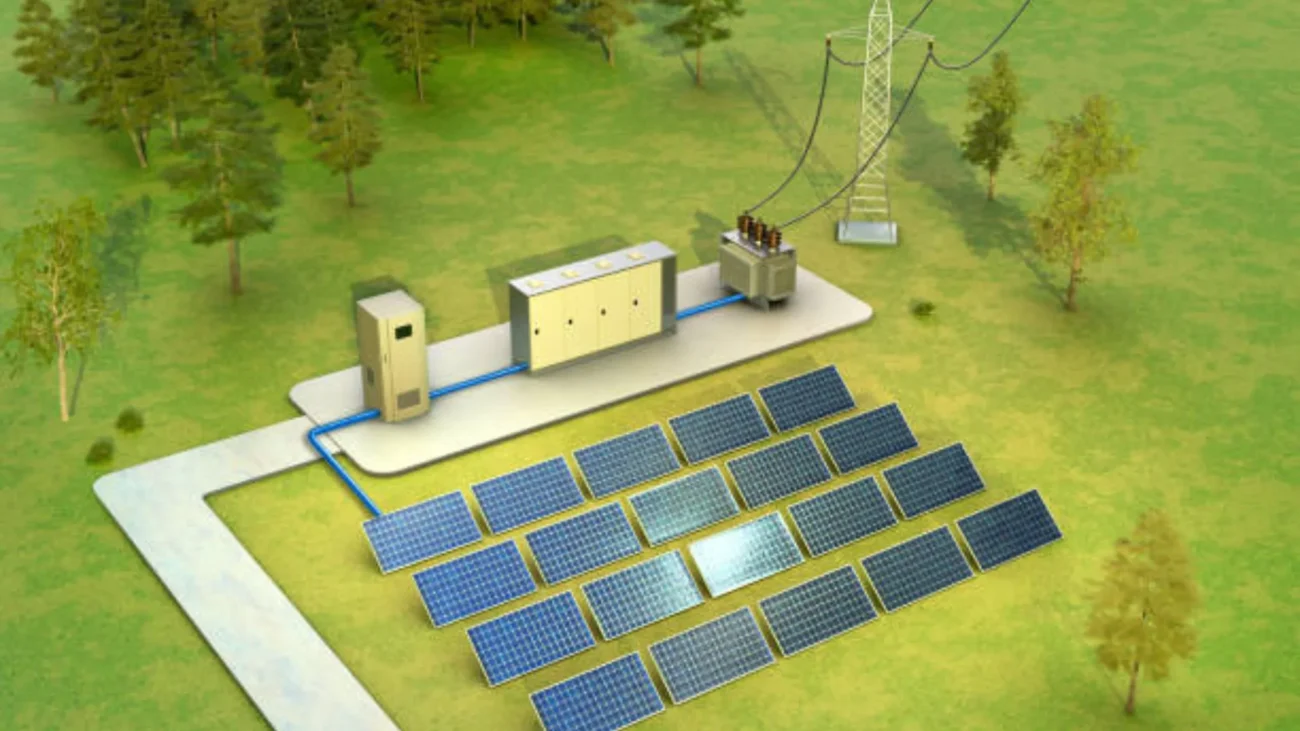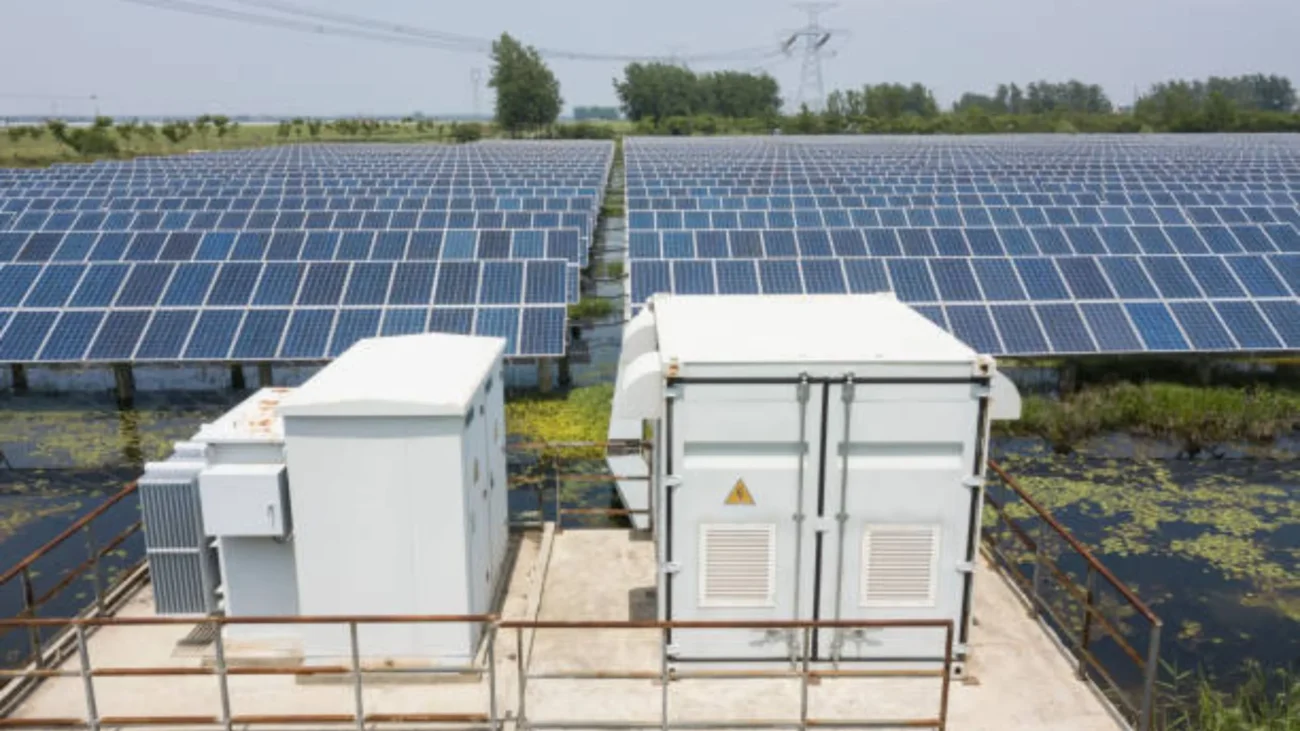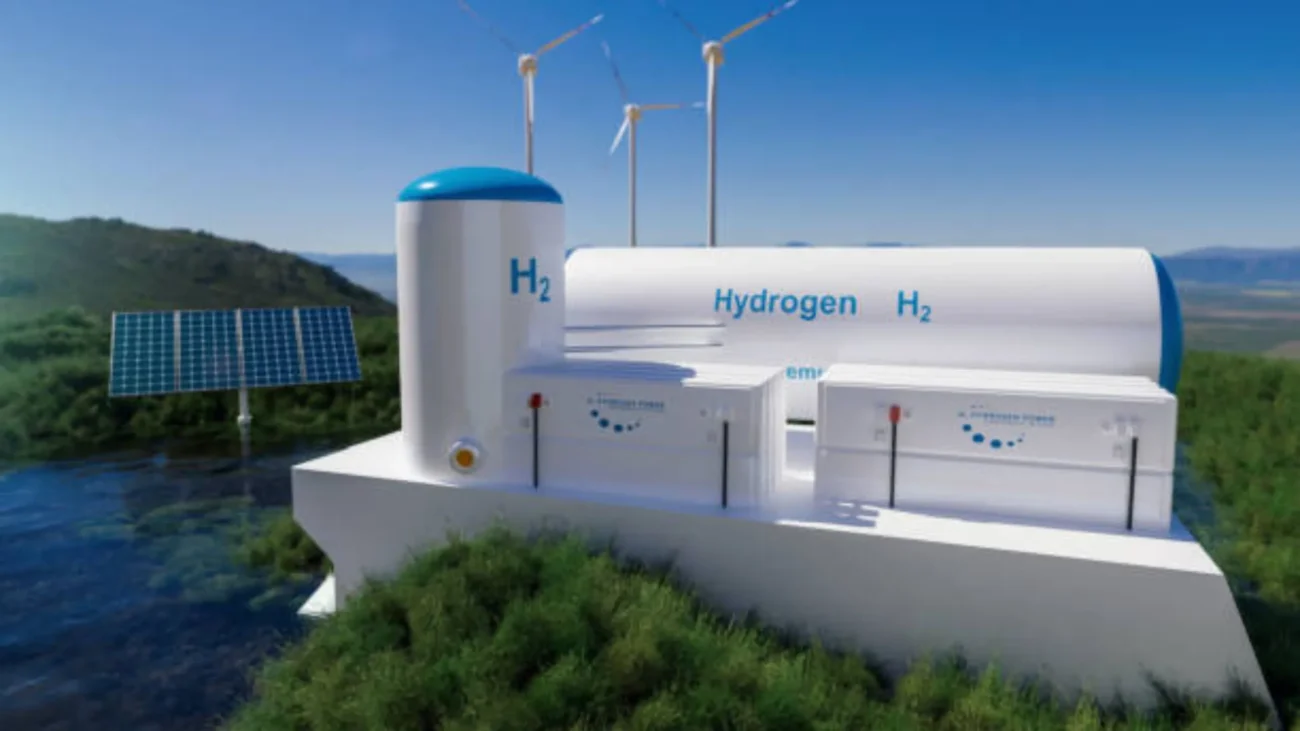What Is The Best Battery Storage For Solar energy has become increasingly popular as a sustainable and cost-effective source of power. However, to maximize the benefits of solar power, it’s crucial to have an efficient battery storage system. This comprehensive guide explores the best battery storage options for What Is The Best Battery Storage For Solar, helping you make an informed decision for your energy needs.
In This Post
Understanding What Is The Best Battery Storage For Solar
What is Solar Battery Storage?
What Is The Best Battery Storage For Solar battery storage systems store the Solar Gadget energy generated by solar panels for later use. This is particularly useful during nighttime or cloudy days when solar panels are less effective. By storing excess energy, these systems ensure a continuous power supply and enhance energy independence.
How Does Solar Battery Storage Work?
What Is The Best Battery Storage For Solar panels convert sunlight into electricity, which is used to power your home or business. Any surplus energy is stored in batteries for future use. When the solar gadget Reviews are not producing enough energy, the stored energy in the batteries is used, reducing reliance on the grid and providing a stable power supply.

Types of Solar Batteries
Lead-Acid Batteries
Lead-acid batteries are one of the oldest and most widely used types of rechargeable batteries. They are known for their reliability and cost-effectiveness.
Pros:
- Cost-Effective: Generally cheaper than other types of batteries.
- Proven Technology: Time-tested and reliable.
Cons:
- Shorter Lifespan: Typically have a shorter lifespan compared to newer technologies.
- Maintenance: Require regular maintenance to ensure optimal performance.
Lithium-Ion Batteries
Lithium-ion batteries are currently the most popular choice for solar battery storage. They are widely used in various applications, including smartphones and electric vehicles. Blog
Pros:
- Long Lifespan: Can last up to 10 years or more with proper maintenance.
- High Efficiency: Higher efficiency rates than lead-acid batteries.
- Low Maintenance: Require minimal maintenance.
Cons:
- Higher Cost: More expensive upfront compared to lead-acid batteries.
- Safety Concerns: Risk of overheating if not managed properly.
Saltwater Batteries
Saltwater batteries are a newer technology that uses saltwater electrolytes instead of heavy metals.
Pros:
- Environmentally Friendly: Do not contain harmful heavy metals.
- Safe: Low risk of overheating or catching fire.
Cons:
- Lower Energy Density: Less energy storage capacity compared to lithium-ion batteries.
- Limited Availability: Not as widely available as other battery types.
Flow Batteries
Flow batteries store energy in liquid electrolytes contained in external tanks. They are known for their scalability and long lifespan.
Pros:
- Scalable: Storage capacity can be easily increased by adding more electrolyte.
- Long Lifespan: Can last for many years with minimal degradation.
Cons:
- High Initial Cost: Expensive to install.
- Large Size: Require more space compared to other types of batteries.
Key Factors to Consider When Choosing Solar Battery Storage
Capacity and Power
What Is The Best Battery Storage For Solar Guides Capacity, measured in kilowatt-hours (kWh), refers to the total amount of energy a battery can store. Power, measured in kilowatts (kW), indicates the amount of energy the battery can deliver at once. A higher capacity and power rating mean the battery can store and deliver more energy.
Depth of Discharge (DoD)
Depth of Discharge (DoD) is the percentage of the battery’s capacity that can be used without damaging the battery. A higher DoD means more usable energy from the battery. For example, a battery with a 90% DoD can use 90% of its capacity before needing a recharge.
Round-Trip Efficiency
Round-trip efficiency measures how effectively a battery can store and release energy. A higher efficiency means less energy is lost during the storage process. For example, a battery with 90% round-trip efficiency means 90% of the energy stored can be used, with only 10% lost in the process.
Lifespan and Warranty
The lifespan of a battery is an important consideration, as it determines how long the battery will last before needing replacement. Most What Is The Best Battery Storage For Solar batteries come with a warranty that guarantees a certain number of cycles or years of operation. A longer warranty can provide peace of mind and ensure a good return on investment.
Cost
The cost of a What Is The Best Battery Storage For Solar battery system includes the initial purchase price, installation costs, and any ongoing maintenance expenses. It’s important to weigh these costs against the benefits, such as energy savings and reduced reliance on the grid, to determine the overall value of the battery system.

Top Solar Battery Storage Options in 2024
Tesla Powerwall 2
Tesla’s Powerwall 2 is renowned for its high capacity, excellent efficiency, and robust warranty. It offers a capacity of 13.5 kWh and a power output of 5 kW.
LG Chem RESU
The LG Chem RESU is a compact and reliable option, providing a capacity of 9.8 kWh and a power output of 5 kW. It is known for its high efficiency and long lifespan.
Sonnen Eco
Sonnen Eco batteries are designed for residential use and offer a capacity of 10 kWh with power output options ranging from 3 to 8 kW. They are praised for their longevity and customer support.
BYD Battery-Box
BYD’s Battery-Box offers scalable storage solutions with a capacity of 13.8 kWh and a power output of 5 kW. It is suitable for various applications and known for its high efficiency.
Enphase Encharge
Enphase Encharge systems provide modular storage options with a capacity of 10.1 kWh and a power output of 3.84 kW. They feature advanced monitoring and are easy to install.
Comparison of Top Solar Battery Storage Options
Capacity and Power Output
- Tesla Powerwall 2: 13.5 kWh, 5 kW
- LG Chem RESU: 9.8 kWh, 5 kW
- Sonnen Eco: 10 kWh, 3-8 kW
- BYD Battery-Box: 13.8 kWh, 5 kW
- Enphase Encharge: 10.1 kWh, 3.84 kW
Efficiency and Depth of Discharge (DoD)
- Tesla Powerwall 2: 90% efficiency, 100% DoD
- LG Chem RESU: 95% efficiency, 90% DoD
- Sonnen Eco: 89% efficiency, 100% DoD
- BYD Battery-Box: 96% efficiency, 90% DoD
- Enphase Encharge: 96% efficiency, 100% DoD
Lifespan and Warranty
- Tesla Powerwall 2: 10 years
- LG Chem RESU: 10 years
- Sonnen Eco: 10 years
- BYD Battery-Box: 10 years
- Enphase Encharge: 10 years
Cost and Value for Money
- Tesla Powerwall 2: Approximately $7,000
- LG Chem RESU: Approximately $6,400
- Sonnen Eco: Approximately $9,500
- BYD Battery-Box: Approximately $7,000
- Enphase Encharge: Approximately $8,000
Installation and Maintenance of Solar Batteries
Professional Installation vs. DIY
While DIY installation can save money, professional installation ensures safety and compliance with local regulations. Professionals can also provide warranties and maintenance services, which can be beneficial in the long run.
Maintenance Tips for Longevity
To maximize the lifespan What Is The Best Battery Storage For Solar battery system, regular maintenance is essential. This includes checking battery connections, ensuring proper ventilation, and keeping the battery clean. Following manufacturer guidelines and scheduling periodic professional inspections can also help maintain optimal performance.
Benefits of Using Battery Storage for Solar Energy
Energy Independence
By storing excess solar energy, battery systems reduce dependence on the grid and provide a reliable power supply even during outages. This enhances energy security and independence.
Cost Savings
What Is The Best Battery Storage For Solar Using stored solar energy reduces the need to purchase electricity from the grid, leading to significant savings on energy bills. Over time, these savings can offset the initial investment in the battery system.
Environmental Impact
What Is The Best Battery Storage For Solar battery storage systems help reduce reliance on fossil fuels, lowering carbon emissions and contributing to a cleaner environment. This aligns with global efforts to combat climate change and promotes sustainable living.

Challenges and Considerations
Initial Investment
The upfront cost of installing a solar battery system can be high. However, many find that the long-term savings and environmental benefits justify the initial investment.
Space Requirements
What Is The Best Battery Storage For Solar Some battery systems require considerable space for installation. It’s important to ensure you have adequate space and suitable conditions for the system before making a purchase.
Technological Advancements
Battery technology is rapidly evolving, with new advancements promising better efficiency and lower costs. Staying informed about the latest developments can help you choose a system that meets your needs and offers the best value.
Future Trends in Solar Battery Storage
Innovations on the Horizon
Emerging technologies, such as solid-state batteries and improved energy densities, are expected to enhance the performance and affordability of solar battery storage systems. These innovations promise to make solar energy more accessible and efficient.
Impact of Technology on Prices
What Is The Best Battery Storage For Solar As technology advances and production scales up, the cost of solar battery systems is expected to decrease. This will make these systems more affordable and attractive to a broader range of consumers.

Government Incentives and Rebates
Available Incentives for Solar Battery Storage
Governments around the world offer various incentives to encourage the adoption of solar battery storage systems. These include tax credits, rebates, and grants that can significantly reduce the overall cost of installation.
How to Apply for Them
Research local and federal programs to find available incentives. Many applications can be completed online or through your solar provider. Ensuring you meet the eligibility criteria and submitting the required documentation promptly can help you take advantage of these financial benefits.
FAQs About Solar Battery Storage
What is the lifespan of a solar battery?
The lifespan of a solar battery varies by type: lithium-ion batteries typically last 10 to 15 years, while lead-acid batteries last 5 to 10 years. Proper maintenance, such as regular checks and cleaning, can extend their lifespan.
How much does it cost to install a solar battery system?
The cost to install a solar battery system ranges from $5,000 to $15,000 or more, depending on the battery’s capacity, type, and installation specifics. This price includes the battery, installation labor, and additional necessary equipment. Government incentives can help reduce these costs.
Can I add a battery to my existing solar panel system?
Yes, you can add a battery to your existing solar panel system. Consult with a professional installer to ensure compatibility and optimal performance. Adding a battery allows you to store excess energy for later use, increasing your energy independence and efficiency.
How do I maintain my solar battery?
Maintain your solar battery by regularly checking connections, ensuring proper ventilation, and keeping it clean. Follow the manufacturer’s maintenance guidelines and schedule periodic professional inspections to maximize lifespan and performance. Proper maintenance prevents issues and ensures efficient energy storage.
Are there government incentives for installing solar battery systems?
Yes, there are government incentives for installing solar battery systems. These incentives can include tax credits, rebates, and grants, significantly reducing the overall installation cost. Check local and federal programs to determine eligibility and application processes for these financial benefits.
